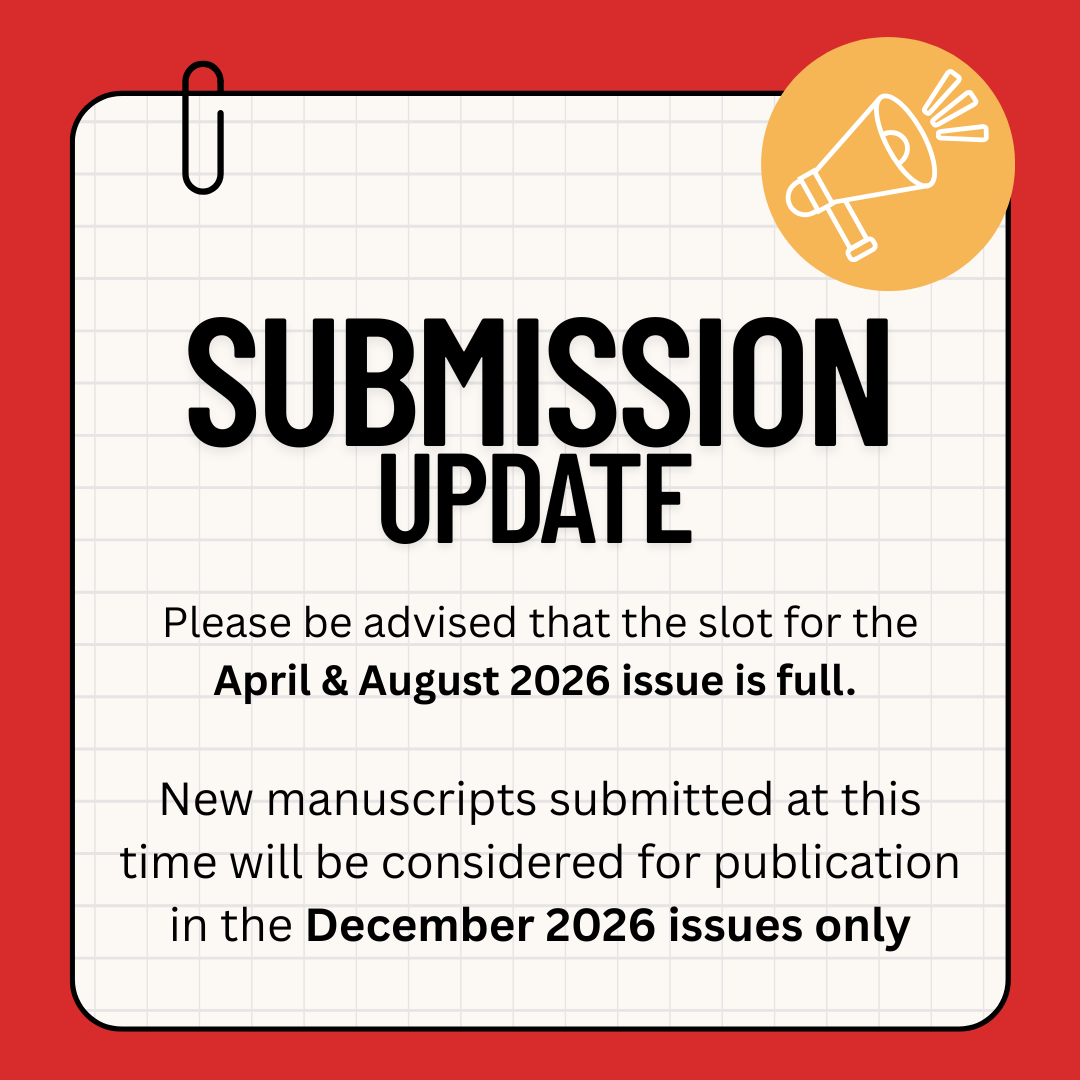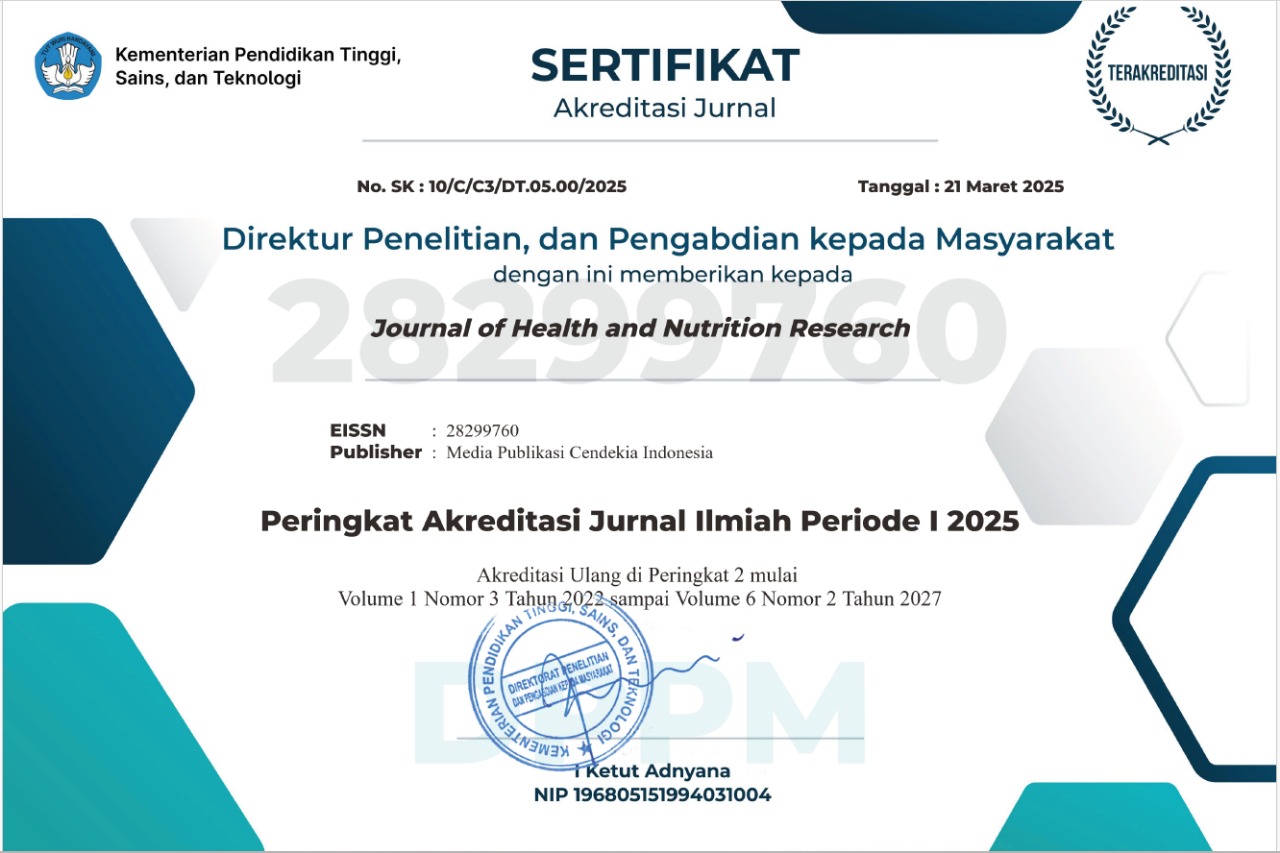Focus and Scope
Focus and Scope
Journal of Health and Nutrition Research, an international, peer-reviewed journal. JHNR aims to provide forums for exchanges and interfaces between researchers and related practitioners in health and nutrition. The journal only accepts articles from original research, reviews, and case study articles.
The following is the scope of this journal:
- Health and Medical Sciences:
- Research encompasses disease etiology, diagnosis, treatment modalities, and prevention strategies.
- Clinical trials, evidence-based medicine, and assessment of therapeutic outcomes.
- Innovations in medical devices, diagnostics, and therapeutic technologies.
- Pathophysiology and molecular mechanisms of human diseases.
- Public Health:
- Epidemiology, biostatistics, and surveillance of population health trends and disease distribution.
- Health policy analysis, formulation, implementation, and evaluation.
- Health services research, including health care delivery systems, management, and quality improvement initiatives.
- Health economics, health informatics, and resource allocation in healthcare.
- Global health governance, international health regulations, and health diplomacy.
- Community health interventions, health promotion, and health education strategies.
- Social determinants of health and health equity across diverse populations.
- Nutrition Science:
- Biochemical and physiological aspects of nutrient metabolism and function.
- Clinical nutrition, including dietetics, nutritional assessment, and therapeutic dietary interventions.
- Public health nutrition, community nutrition programs, and nutritional epidemiology.
- Functional foods and nutraceuticals, focusing on their physiological effects and health benefits.
- Socio-economic and behavioral factors influencing dietary patterns and nutritional status.
- Food Science and Technology:
- Fundamental and applied research in food chemistry, biochemistry, and physical properties of food.
- Advances in food processing, preservation, engineering, and packaging technologies.
- Food microbiology, food safety management systems, and food quality assurance.
- Food biotechnology, development of novel food ingredients, and analysis of food composition.
- Sensory science and consumer perception of food products.
- Food policy, food law, regulatory affairs, and aspects of food security and sustainability.
- Research related to specific food standards and certification systems (e.g., Halal food production and analysis).
- Midwifery and Women's Health:
- Antenatal, intrapartum, and postpartum care practices and outcomes.
- Neonatal care, assessment, and health promotion.
- Reproductive health, family planning, and gynecological health across the lifespan.
- Health issues specific to women, including psychosocial aspects of pregnancy and childbirth.
- Nursing Science and Practice:
- Foundational principles and theories of nursing care.
- Specialized nursing practices include medical-surgical, maternal, mental health, gerontological, emergency, critical care, and family and community health nursing.
- Nursing management, leadership, education, and workforce development.
- Patient safety, quality of care, and evidence-based nursing interventions.
- Pharmacy and Pharmacology:
- Pharmacological research, including pharmacodynamics and pharmacokinetics.
- Pharmacoepidemiology and the role of pharmaceuticals in public health contexts.
- Assessment of pharmaceutical interventions, pharmacovigilance, and societal and economic impact evaluation.
- Clinical pharmacy, pharmaceutical care, and medication therapy management


















